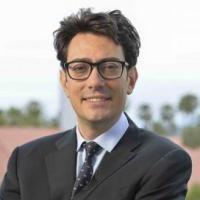SystemX Affiliates: login to view related content.

In this talk I will present planning and decision-making techniques for safely and efficiently maneuvering autonomous aerospace vehicles during proximity operations, manipulation tasks, and surface locomotion. I will first address the "spacecraft motion planning problem," by discussing its unique aspects and presenting recent results on planning under uncertainty via Monte Carlo sampling. I will then turn the discussion to higher-level decision making; in particular, I will discuss an axiomatic theory of risk and how one can leverage such a theory for a principled and tractable inclusion of risk-awareness in robotic decision making, in the context of Markov decision processes and reinforcement learning. Throughout the talk, I will highlight a variety of space-robotic applications my research group is contributing to (including the Mars 2020 and Hedgehog rovers, and the Astrobee free-flying robot), as well as applications to the automotive and UAV domains.
This work is in collaboration with NASA JPL, NASA Ames, NASA Goddard, and MIT.
Dr. Marco Pavone is an Assistant Professor of Aeronautics and Astronautics at Stanford University, where he is the Director of the Autonomous Systems Laboratory and Co-Director of the Center for Automotive Research at Stanford. Before joining Stanford, he was a Research Technologist within the Robotics Section at the NASA Jet Propulsion Laboratory. He received a Ph.D. degree in Aeronautics and Astronautics from the Massachusetts Institute of Technology in 2010. His main research interests are in the development of methodologies for the analysis, design, and control of autonomous systems, with an emphasis on self-driving cars, autonomous aerospace vehicles, and future mobility systems. He is a recipient of a number of awards, including a Presidential Early Career Award for Scientists and Engineers, an ONR YIP Award, an NSF CAREER Award, and a NASA Early Career Faculty Award. He was identified by the American Society for Engineering Education (ASEE) as one of America's 20 most highly promising investigators under the age of 40. His work has been recognized with best paper nominations or awards at the International Conference on Intelligent Transportation Systems, at the Field and Service Robotics Conference, at the Robotics: Science and Systems Conference, and at NASA symposia.


